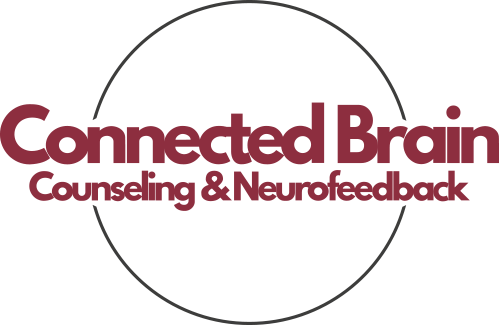Young adulthood can be a turbulent time, full of complex challenges and obstacles. With social media omnipresent, isolation becoming more common, economic struggles, and societal pressures all playing a role, many young adults find themselves in need of guidance and support. Couples counseling in Denver provides an invaluable resource for those struggling to cope with these issues, offering a safe and supportive environment to navigate the difficulties of modern life that may affect their relationship. In this blog post, we’ll explore the biggest challenges young adults face today, and how therapy can help them overcome these obstacles and find their way to a happier, healthier life.
The Impact of Social Media on Young Adults
In today’s digital age, social media has become an integral part of young adults’ lives. While it has its benefits, such as staying connected with friends and accessing information, the impact of social media on young adults can also be detrimental to their mental health and overall well-being.
One of the biggest challenges young adults face today is the pressure to constantly present a perfect image on social media. The carefully curated posts and filters can create a false sense of reality, leading to feelings of inadequacy and low self-esteem. Comparison to others’ seemingly perfect lives can fuel feelings of jealousy and depression.
Moreover, excessive use of social media can contribute to feelings of isolation and loneliness. Although young adults may have hundreds of online friends, the lack of face-to-face interactions and genuine connections can leave them feeling disconnected from the real world. Studies have shown that prolonged use of social media is associated with increased rates of anxiety and depression.
Furthermore, social media can also have negative effects on sleep patterns and productivity. The constant need to stay updated and connected can lead to sleep deprivation, which in turn affects mood and cognitive abilities. Additionally, spending excessive amounts of time scrolling through social media feeds can be a major distraction from academic or professional responsibilities.
Therapy can play a vital role in helping young adults navigate the impact of social media. By exploring underlying beliefs and developing healthy coping strategies, therapists can assist young adults in building resilience and confidence in the face of societal pressures and the digital world.
The Isolation Epidemic: How Loneliness Affects Mental Health
In today’s digital age, it may seem counterintuitive to talk about loneliness and isolation. After all, we are more connected than ever through social media platforms and online communities. However, this increased connectivity has paradoxically led to an epidemic of loneliness among young adults.
Loneliness is a silent but pervasive issue that affects mental health in profound ways. When young adults feel isolated, they often struggle with feelings of sadness, low self-esteem, and anxiety. This can lead to a vicious cycle where they withdraw from social interactions, which further perpetuates their loneliness.
The impact of isolation on mental health cannot be understated. Research has shown that chronic loneliness is linked to a higher risk of depression, anxiety disorders, and even suicide. It also has detrimental effects on physical health, including increased risk of cardiovascular disease and compromised immune function.
There are several reasons why young adults may feel isolated. The pressure to constantly present a perfect image on social media can lead to feelings of inadequacy and isolation when comparing themselves to others. Additionally, the fast-paced nature of modern life often leaves little time for deep and meaningful connections, resulting in superficial relationships and a lack of emotional support.
Therapy can play a crucial role in helping young adults combat the isolation epidemic. A therapist, or a couples therapist in Denver, can provide a safe and nonjudgmental space for individuals to explore their feelings of loneliness and develop strategies to improve social connections. They can also help clients build self-esteem and develop effective communication skills, enabling them to form more fulfilling relationships.
By addressing the root causes of loneliness and learning healthy coping mechanisms, therapy empowers young adults to navigate their social landscape with confidence and resilience. In particular, if these struggles affect romantic relationships for young adults, a couples therapist can help couples navigate the stressors of modern life. Together, we can break the cycle of isolation and foster a sense of belonging in the lives of young adults.
Economic Struggles and Job Insecurity for Young Adults
One of the biggest challenges young adults face today is the burden of economic struggles and job insecurity. Many young adults enter the workforce with high hopes and expectations, only to be met with a highly competitive job market and limited opportunities.
The rising cost of education, coupled with mounting student loan debt, adds to the financial strain young adults face. With the cost of living constantly increasing, it becomes harder for young adults to make ends meet, let alone save for the future. This financial stress can lead to feelings of anxiety, depression, and even hopelessness.
Job insecurity is another major concern for young adults. The rise of the gig economy and the increasing use of contract work means that stable, long-term employment is harder to come by. Many young adults find themselves in a cycle of short-term contracts or low-paying jobs, leaving them with uncertainty about their future.
The combination of economic struggles and job insecurity can have a significant impact on a young adult’s mental health and overall well-being. Feelings of inadequacy, frustration, and stress can easily take a toll on their confidence and self-esteem.
Societal Pressures and Expectations: Navigating Relationships
Young adults face a significant amount of pressure to conform to societal expectations regarding their relationships, family, and culture. Whether it’s pressure to find a partner, start a family, or conform to traditional gender roles, these expectations can be overwhelming and stressful for many young adults.
Family and cultural expectations can also be a significant source of stress for young adults, particularly those from immigrant or minority communities. Balancing the expectations of their families and cultural heritage with the desire to assimilate and succeed in mainstream society can be a delicate and difficult process.
Therapy can be a valuable resource for young adults navigating these complex societal pressures and expectations. Therapists can help clients develop strategies for setting boundaries, communicating effectively with family members, and exploring their own values and beliefs. Therapy can also provide a safe and supportive space for young adults to express their feelings and concerns without judgment, which can be particularly helpful when dealing with sensitive issues related to family, culture, and relationships.
How Therapy Can Help: Strategies for Building Confidence and Resilience
Therapy can provide young adults with tools to cope with the challenges they face and build resilience in the face of adversity. A trained therapist can help young adults identify negative thought patterns, explore their emotions, and develop healthy coping strategies. Here are some strategies therapists use to help young adults build confidence and resilience:
1. Mindfulness Techniques: Mindfulness practices such as deep breathing and meditation can help young adults calm their minds, reduce anxiety, and improve their ability to focus.
2. Cognitive Behavioral Therapy: CBT is a type of therapy that focuses on changing negative thought patterns and beliefs that can lead to anxiety and depression. CBT can help young adults develop more positive self-talk, which can improve self-esteem and confidence.
3. Building Social Support: Therapists can help young adults build supportive relationships with friends and family, and teach them how to set healthy boundaries in their relationships.
4. Goal-Setting: Setting achievable goals can help young adults feel more empowered and in control of their lives. Therapists can work with young adults to identify their values and develop a plan to achieve their goals.
Overall, therapy can be an effective tool for young adults to face the challenges of today’s society with confidence and resilience.
Couples Counseling and Individual Counseling for Young Adults in Denver
Connected Brain Counseling, a private practice in the Highlands in Denver, offers both individual and couples counseling to help young adults navigate the stressors of modern life. Their steam specializes in adult women and trauma though they see and accept clients of all ages, gender identifications and struggles. You can learn more about their team here.





